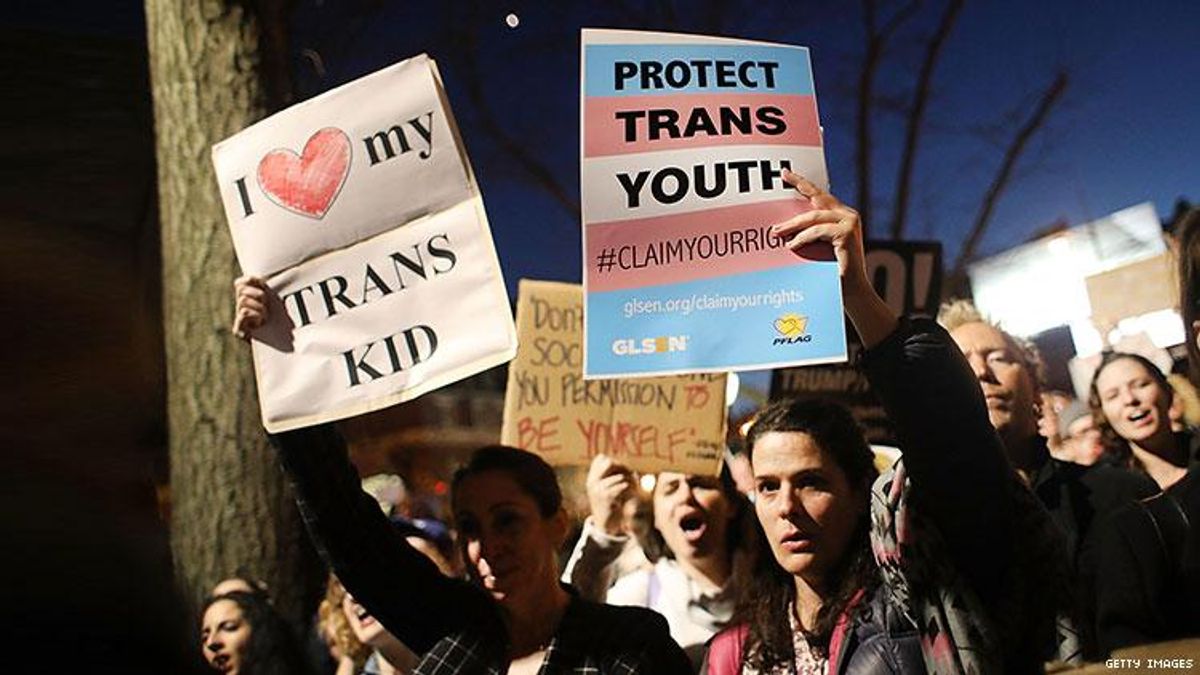South Dakota lawmakers killed yet another bill targeting trans kids -- the fourth such bill to enter the legislature since January.
House Bill 1225 failed to get the votes it needed to pass the House on Monday, Sioux Falls radio station KELO reports. The bill, sponsored by House Majority Leader Lee Qualm, would have forced trans student athletes to participate in sex-segregated school sports in accordance with the sex listed on their birth certificates. Introduced Jan. 30, HB1225 would have discouraged a lot of trans kids from participating in school activities, further marginalizing them from public life.
"There is this real energy in certain states to attack trans people, in particular trans students, through the legislative process," says Chase Strangio, a staff attorney with the American Civil Liberties Union. "When you listen to hearings [on these bills], it's clear that the proponents are attempting to encourage trans people to live in their birth-assigned sex and prevent people from becoming trans."
Three previous bills that were defeated in the South Dakota state legislature this year sought to limit discussion of "gender dysphoria" in public schools, give parents the right to deny their kids trans-affirming medical care without penalty, and overturn the trans-inclusive policy that the South Dakota High School Activities Association adopted in 2015. It is highly unlikely that state lawmakers will introduce another anti-trans bill this year, Strangio says, but he fully expects to see more in 2020.
"There's such a focus on Trump and the federal government that little attention is paid to the state level where so many of the legislative attacks on trans existence are playing out," he tells Out. He cites the four defeated bills in South Dakota, the withdrawn birth certificate bill in Utah, the bill in Mississippi that would let public school teachers misgender students without penalty, and the pair of bills in Tennessee that would criminalize trans people in public restrooms and let foster-care and adoption agencies refuse to place children with LGBTQ+ parents on religious grounds.
"These legislative debates seem very abstract, but they have real world consequences," says Strangio, noting that "any law that increases control or surveillance of people's bodies in state institutions like public schools or foster care will always have a disproportionate impact on the people who are more likely to be funneled into state-controlled spaces like lower-income people, people of color, and immigrants."
"Every year, it's the same conversation," he continues. "We've been able to defeat bills four bills in South Dakota this year, and that's huge. But I fully anticipate that we will see more next year."
RELATED | South Dakota Lawmakers Kill Anti-Trans Bill, but Another One Remains

























































































